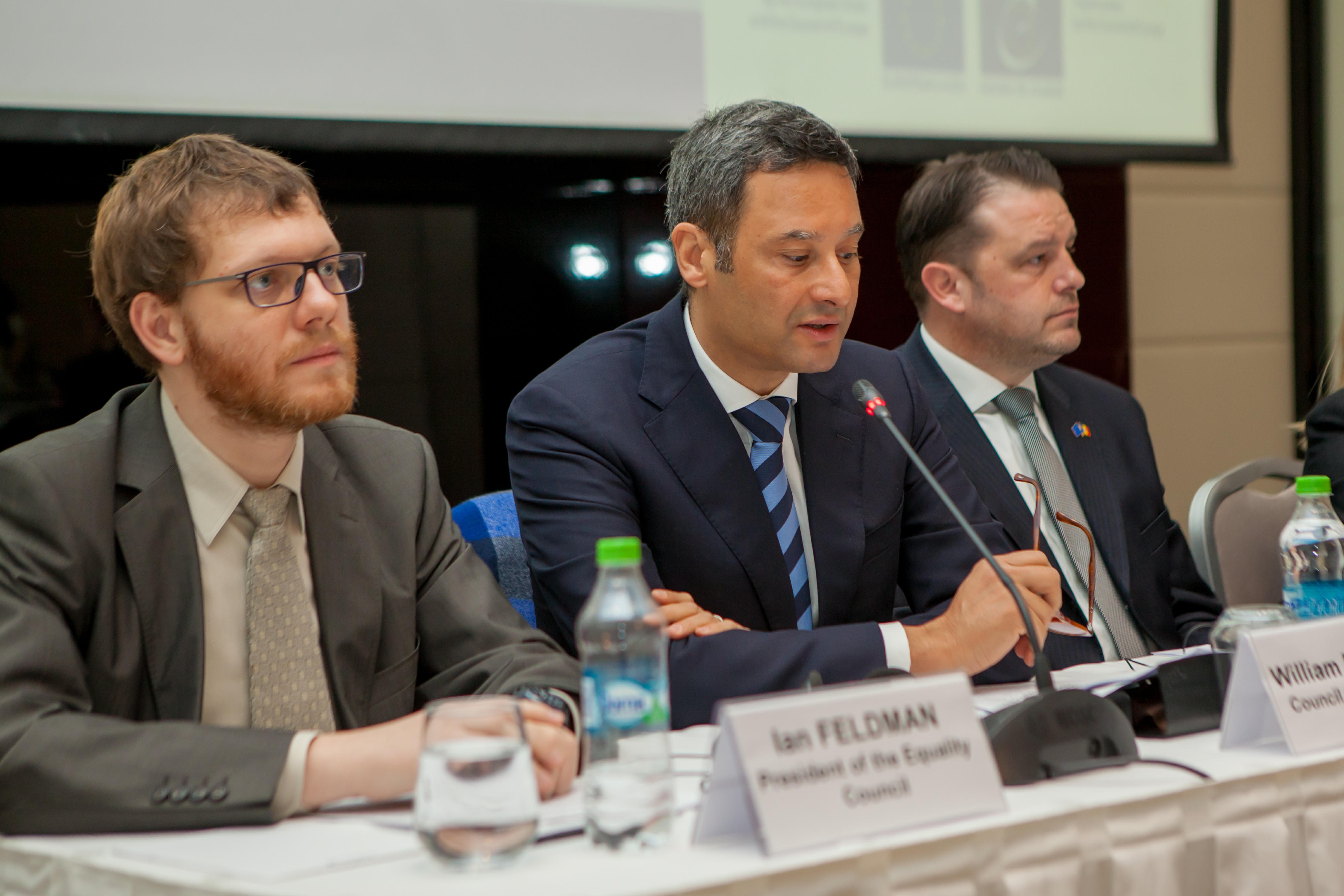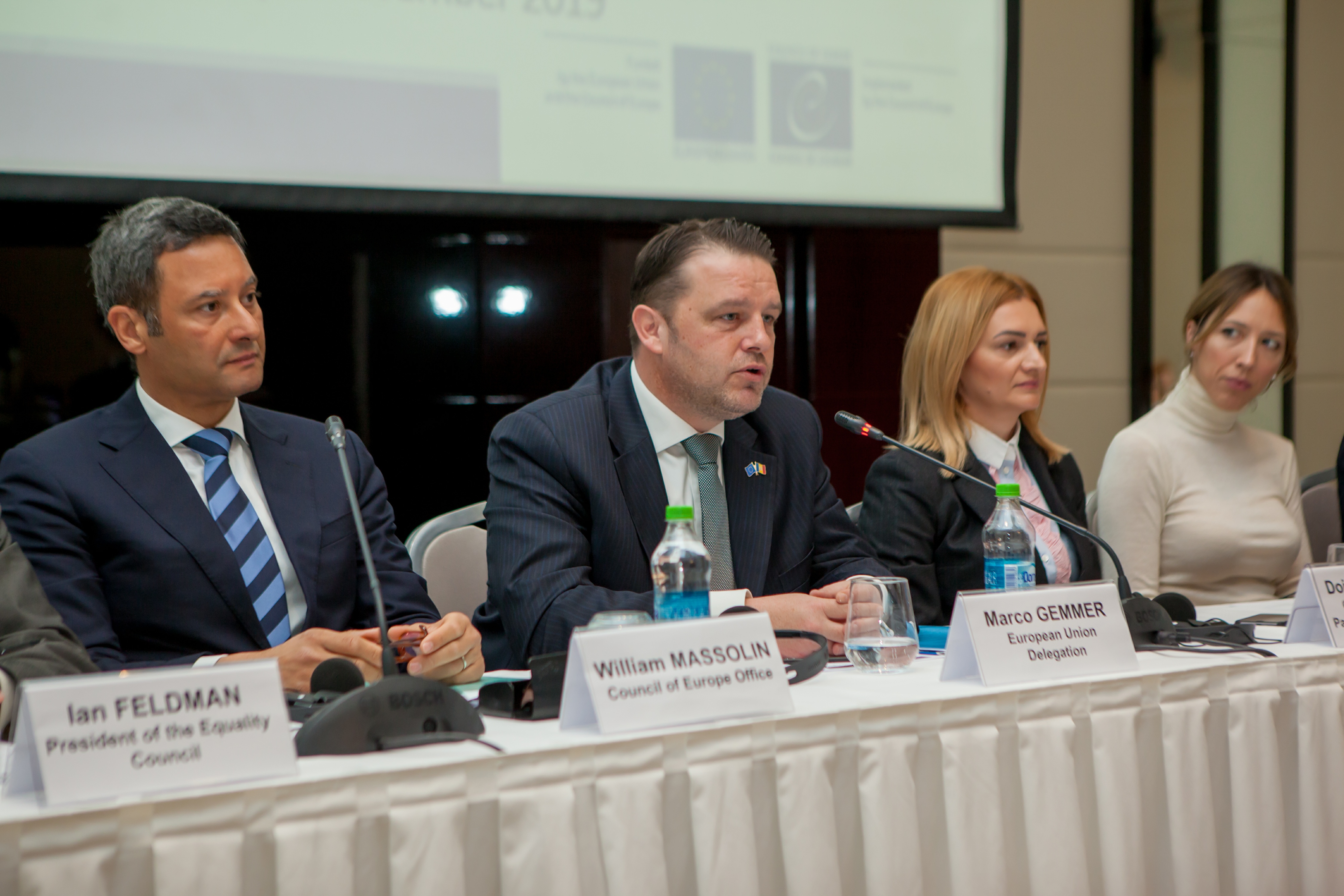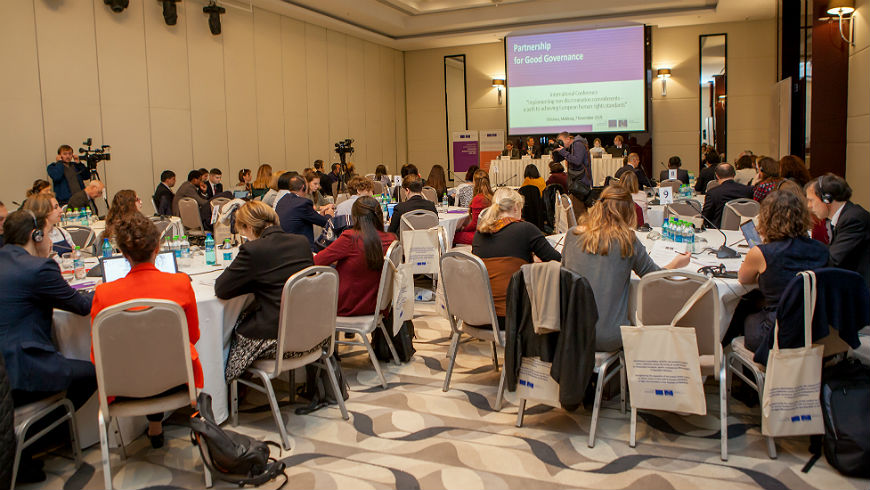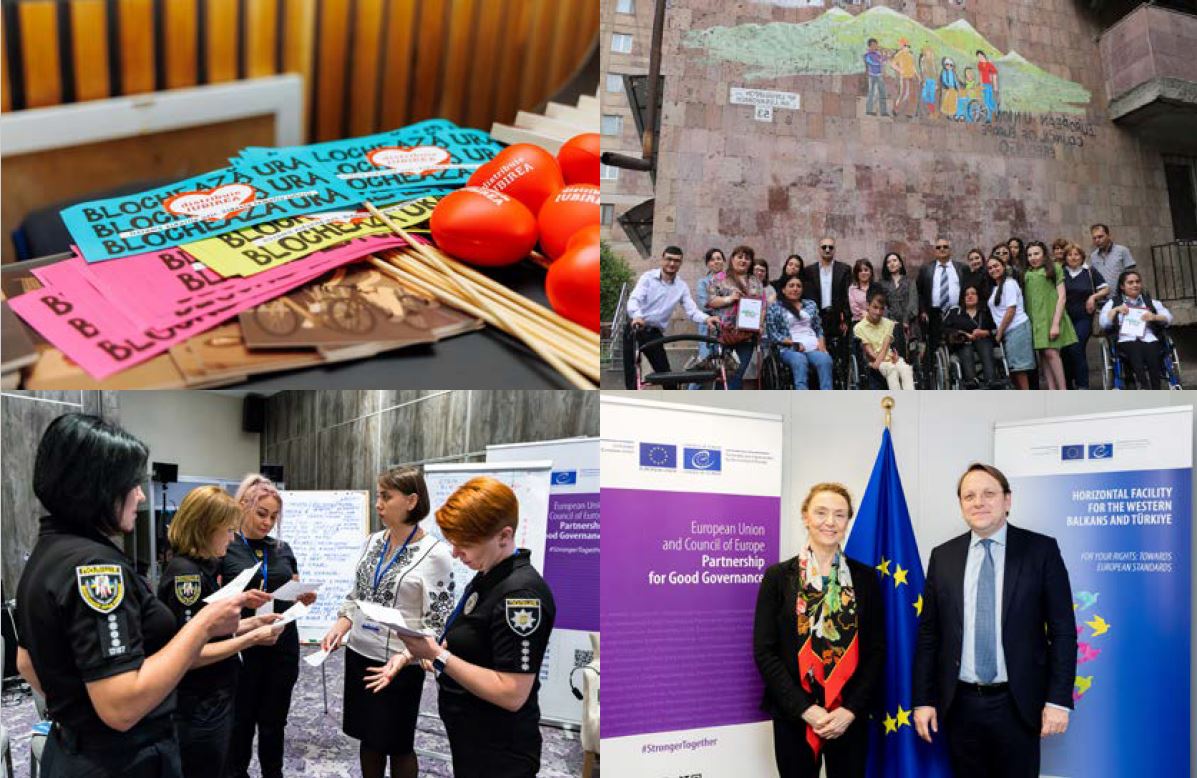The necessity of strong cooperation between national authorities and civil society, role of lawyers and the use of communication strategies as key tools for preventing and fighting discrimination were the focus of the joint European Union and Council of Europe international conference that took place on 7 November 2019 in Chisinau, Republic of Moldova. The conference brought together representatives of the Ombudsperson Offices, equality bodies, state authorities and key local NGOs from the Republic of Moldova, Ukraine, Armenia, Georgia, Azerbaijan and Belarus, as well as international experts and representatives of international organisations.
The conference was organised in the framework of the European Union/Council of Europe Partnership for Good Governance II and its two currently implemented projects: national Moldovan project “Strengthening the capacities of the justice sector actors to deliver justice in line with European standards, in particular to fight discrimination”and the regional project “Strengthening access to justice through non-judiciary redress mechanisms for victims of discrimination, hate crime and hate speech in Eastern Partnership countries”, funded by the European Union and co-funded and implemented by the Council of Europe.
William Massolin, Head of Council of Europe Office in Chisinau, Mr Marco Gemmer, Head of Operations Section, European Union Delegation to the Republic of Moldova, Milica Djunic, Project Coordinator, Eastern Partnership and Russian Federation Unit, Human Rights National Implementation Division, Council of Europe, Menno Etemma, Programme Manager, No hate Speech and Cooperation unit, Anti-Discrimination Department, Council of Europe, and Ian Feldman, President of the Council for Prevention and Elimination of Discrimination and Ensuring Equality addressed the participants during the opening session.
The conference served as a forum for an open exchange of experiences and solutions for better protection against discrimination at the national level. Participants discussed a recently conducted assessment of the Effectiveness of the National Equality body/Ombudsoffice as redress mechanism for victims of discrimination, hate crime and hate speech in Eastern Partnership countries. The discussion about the importance of efficient communication between all relevant actors in the area of non-discrimination,with the example of the Communication Strategy of the Moldovan Equality Council, was opened and led to useful and practical conclusions.








